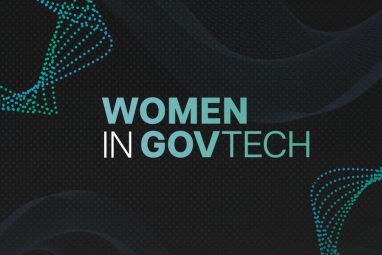How the Middle East is Turning Visa Reform Into an Economic Strategy
From Washington to Riyadh to Beijing, a single visa policy shift has sparked a realignment in where the world’s brightest minds build and belong.
News
- Dubai Media Enters Streaming Space With Dubai+, a Local-First OTT Platform
- MBZUAI Unveils K2 Think V2, Advancing the UAE’s Push for Fully Sovereign AI
- ENEC, TII, and ASPIRE Partner to Advance Autonomous Aerial Systems
- OpenAI Bets on AI to Streamline Scientific Research Workflows
- AI Use Is Rising at Work but Productivity Gains Lag
- Meta Signals Shift Toward Paid Features With Subscription Tests Across Its Apps

[Image source: Chetan Jha/MITSMR Middle East]
The US has historically tapped into a universal drive, selling the “American Dream,” a vision rooted in the pursuit of something bigger, better, and more innovative.
According to the World Migration Report 2024 by the International Organization for Migration, in 2020, international migrants accounted for 3.6 percent of the world’s population, totaling an estimated 281 million people.
The US H-1B visa has long been the gold standard—but not anymore. With US President Donald Trump raising the application fee sharply for workers seeking H-1B visas, millions across the globe are left in limbo with their dreams of “the better life” shattered.
According to the latest American Community Survey (ACS) from the US Census Bureau, 47.8 million immigrants resided in the US as of 2023.
Amid this shift, Middle Eastern countries are seizing the moment by rolling out streamlined, highly attractive visa programs to capture a larger share of global tech talent. Beyond visa, this is a glimpse into how policy innovation is rapidly redrawing the map of the global tech economy.
Global Talent Grab
“The international talent landscape is being redrawn by visa reforms,” says Manoj Joshi, CEO, SA Technologies. In July, the UAE overhauled its Golden Visa, a five- or 10-year, nomination-based long-term residency permit allowing skilled foreign talent to live and work without losing status after extended absences.
According to immigration consultants, Khaleej Times reported, the demand for the UAE’s long-term residency programs, including the Golden Visa, Freelance Visa, and Remote Work Visa, has increased post H-1B announcement.
In 2023, the UAE awarded 158,000 Golden Visas to attract specialized talent in artificial intelligence, climate technology, and digital innovation, going beyond investors and capital.
“Saudi Arabia and Oman are getting into the act,” adds Joshi.
With the Premium Residency Visa for foreign investors, entrepreneurs, and real estate owners, Saudi Arabia will allow the holder and their family members to leave and return without requiring a visa at a one-time payment of about $213,000 or via renewable annual permits costing about $26,700 a year.
Oman launched a 10-year Golden Residency for foreigners investing about $520,000 in property, bonds, companies, or businesses that generate jobs.
Meanwhile, Qatar offers long-term residency for a $200,000 real estate investment, rising to $1 million for permanent residency. At the same time, Bahrain’s 2022 10-year Golden Residency targets property investors (at least $530,000), high-earning professionals, and retirees.
“Nations like the UAE, Saudi Arabia, Oman, and China are positioning themselves as talent magnets through Golden Visa and K visa programs, creating new innovation hubs. These changes redistribute global talent, influence long-term economic competitiveness, and deepen geopolitical recalibrations,” says Sidd Ahmed, President and CEO, VDart Group.
Earlier this month, China launched the “K” visa as a strategic initiative to attract foreign talent in science, technology, engineering, and mathematics (STEM) fields to compete with the United States. JPMorgan predicts that H-1B visas’ new $100,000 fee could cut 5,500 work authorizations monthly.
It implements various policies to encourage foreign investment and travel, including expanding access for international investors across multiple sectors and removing visa requirements for nationals from most European nations, Japan, South Korea, and others.
“This policy is expected to have a positive impact on financial markets, particularly China’s tech sector, which has been suffering from a slowdown in foreign investment and a shortage of specialized talent due to previously more restrictive policies,” said Mohanad Yakout, senior markets analyst, Scope Markets.
“However, the success of this initiative ultimately depends on China’s ability to create an attractive and secure working environment for foreign talent, free from political constraints and excessive oversight,” he adds.
Hong Kong, Singapore, Australia, and Japan have emerged as strong contenders in the Asia-Pacific. Japan actively recruits to address an ageing workforce, and Hong Kong and Singapore score high on appeal and readiness. Meanwhile, Canada is favoured for its robust immigration policies. Europe, Germany, Finland, and Ireland are drawing skilled professionals, with Germany’s Skilled Workers Immigration Act easing access for non-EU workers. These shifting dynamics in global talent mobility could trigger long-term economic shifts.
“With talent being redistributed, innovation and growth may become more globally dispersed, with emerging economies becoming both destination and source of it. Competition for talent is intensifying, heightening brain drain risks for developing nations and widening divides between countries that can attract talent and those that cannot,” says Bopanna Nanjappa, manager, Crown World Mobility, part of Crown Worldwide Group.
With H1-B’s changed policies, the age of one dominant talent destination is over. Talent is now distributed among a multi-polar set of competing hubs, and China will also be looking for a chance to become a leader in this space.







